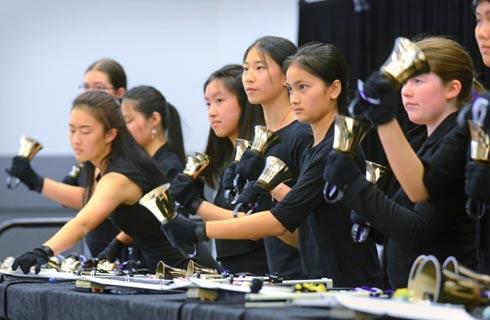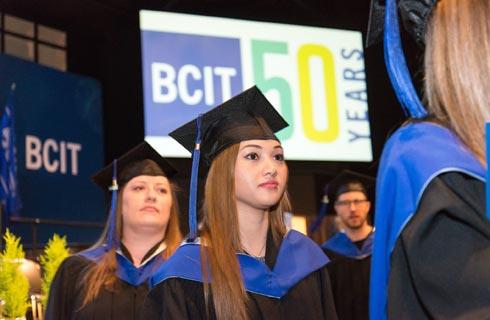国际学生入学条件
An official transcript of all collegiate work completed along with a certified translation into English.
An undergraduate grade point average of 3.000 (A = 4.000) is required by CSU regulation for admission.
Minimum TOEFL score for admission without condition is 550 (paper based), or 80 (internet based).
Minimum IELTS score for admission without condition is 6.5.
Submit: (1) a resume or vita indicating your education, training, and work experience; (2) a personal statement, not longer than two or three typewritten pages. Write a biographical sketch highlighting your interest in psychology and your previous or current involvement in research, or applied psychology work. The Selection Committee is concerned with how your interest in Counseling psychology developed, what you want from a graduate program, and an assessment of your personal strengths and weaknesses; and (3) the Counseling Academic Information Form. For your ease of use, this form is available on our web site in Word format so that you may save the file to your computer to review, and complete so that you can copy and paste into the electronic form. In the application system, you will enter your answers to these questions on the page titled “Supplemental-Psychology” after selecting the “Counseling” checkbox.
The following information and instructions have been written to assist the applicant in completing the application materials for our Graduate Programs. The application process is highly competitive with 500 plus applicants each year. Although the selection process is not based on GPA and GRE scores alone, we recommend that applicants have a GPA in the range of 3.2 to 3.6 or better, and GRE Verbal and Quantitative scores in the range of 50 to 70th percentile or better.
Across all graduate training programs in the Department, we offered positions to 21 out of 681 applicants for the 2017 term. The average GRE Verbal percentile was 80%, average GRE Quantitative percentile was 65%, and average GRE Writing percentile was 80%. The average GPA of applicants offered positions was 3.77.
Applied Social and Health, Cognitive, Cognitive Neuroscience, Counseling and I/O psychology programs offer M.S. and Ph.D. degrees, but only accept those applicants who definitely wish to pursue the Ph.D.
展开
IDP—雅思考试联合主办方

雅思考试总分
6.5
- 雅思总分:6.5
- 托福网考总分:80
- 托福笔试总分:550
- 其他语言考试:Minimum PTE score for admission without condition is 58.
CRICOS代码:
申请截止日期: 请与IDP联系 以获取详细信息。
课程简介
The Graduate Program in Counseling Psychology at Colorado State University is based upon a scientist-practitioner model of training. As such, the goal of the program is to produce students who are capable of advancing psychology as a science and who are proficient in the use of a variety of counseling and clinical techniques. In meeting this goal, students must demonstrate excellence in three basic areas:<br><br>Psychological Theory - Fundamental to being a counseling psychologist is a broad knowledge of the theoretical basis of psychology. Breadth of knowledge in general psychology is developed largely through the core curriculum which includes topics such as human learning and memory, animal learning, personality, social psychology, measurement, history of psychology, physiological psychology, developmental psychology, neuropsychology, and statistics. The core curriculum provides a conceptual foundation of research, scholarship, and the developmental of skills in assessment and intervention. <br><br>Research - Students are expected to become intelligent consumers and contributors. To meet this end, students take courses in both basic and advanced statistical and methodological concepts. Research involvement is required at both the master's and doctoral levels and encouraged throughout the program. Students are encouraged to join faculty in ongoing research endeavors. Faculty have a wide range of both applied and theoretical interests.<br><br>Assessment & Intervention - Training begins during the first year of the program and continues throughout, culminating in a year's internship. Required course work in personality theory, developmental theory, testing, psychopathology, and counseling/psychotherapy theory provide the foundation for a conceptual understanding of problems, life circumstances, and intervention strategies. Additionally, students are expected to develop an area of specialization. For example, a student might choose a child specialty and include courses in child assessment, child interventions, and school consultation, a student might select an adult emphasis and prepare for a career in a university counseling center, or a student might seek experience in family therapy or in medical settings. Skill development through practicum placements begins with interviewing/prepracticum courses in the first year and continues with placements in the University Counseling center the second year and in the Psychological Services Center the third year. In the second year, practicum students work with clients with educational, vocational, and/or developmental problems. As students progress, clients needing short-term psychotherapy may be seen. Clients seen in the third-year practicum are typical of persons seen in a community mental health center. Students begin treating adults, children, and families with various psychological problems during their third-year practicum. Advanced practica are selected based on each student's interests and professional goals. Advanced practica in community settings are encouraged. After completion of academic requirements and the intensive practicum training, doctoral students are required to complete a one-year internship which is consistent with the student's professional goals.
展开







 预科
预科 奖学金
奖学金 实习机会
实习机会 在校学习
在校学习 跨境学习
跨境学习 校园授课-线上开始
校园授课-线上开始 在线/远程学习
在线/远程学习













 麦吉尔大学继续教育学院
麦吉尔大学继续教育学院

 麦吉尔大学继续教育学院
麦吉尔大学继续教育学院

 卡尔加里大学
卡尔加里大学

 维多利亚大学
维多利亚大学

 阿尔伯塔大学
阿尔伯塔大学

 阿尔伯塔大学
阿尔伯塔大学









 美国
美国
